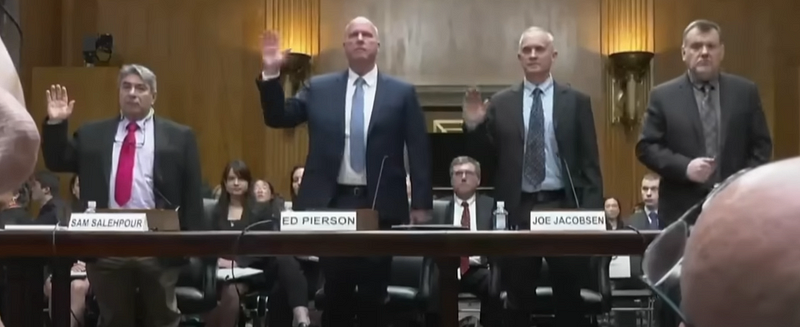Understanding Whistleblowers and Their Critical Role in the Aviation Industry

What Are Whistleblowers?
The term “whistleblower” has evolved from its roots in the imagery of referees and police officers using whistles to alert others of rule infractions or dangers. In contemporary terms, a whistleblower is someone who exposes illegal, unethical, or improper conduct within an organization. This act of disclosure is often done at great personal and professional risk, highlighting the courage required to stand against systemic issues.
Importance in the Aviation Industry
In aviation, where safety is paramount, whistleblowers are crucial. They help uncover and address potentially catastrophic issues that could endanger lives and lead to significant economic losses. Their insights and warnings can lead to critical improvements in safety protocols, regulatory compliance, and overall operational integrity.
The Surge of Whistleblowing Cases in Boeing
Boeing, a cornerstone of the aviation industry, has seen a significant increase in whistleblowing cases in recent years. This trend raises questions about the company’s internal practices and safety culture. High-profile whistleblowers like John Barnett have brought attention to serious concerns within Boeing’s production processes.
The Evolution of Whistleblower Protections
Historically, protections for whistleblowers were weak and easily circumvented. It wasn’t until the late 20th century that robust legal frameworks began to take shape. For instance, the U.S. Whistleblower Protection Act of 1989 and the UK’s Public Interest Disclosure Act of 1998 provided critical safeguards. The European Union implemented its first comprehensive whistleblower protection law in 2019, demonstrating the growing recognition of the importance of these protections.
Challenges Faced by Whistleblowers
Despite legal protections, whistleblowers often face severe retaliation, including demotion, dismissal, and workplace harassment. Proving such retaliatory actions can be difficult, and the stigma of being labeled a whistleblower can isolate individuals from their colleagues and damage their careers.
Case Studies: Whistleblowers at Boeing
John Barnett: A former Boeing quality control manager, Barnett worked at Boeing for over 32 years. He raised concerns about safety issues at the North Charleston, South Carolina facility, including the improper handling of metal shavings and inadequate inspection procedures. Despite his efforts to address these issues internally, Barnett faced significant retaliation and was eventually forced to quit. His tragic death in 2024, ruled a suicide, occurred amidst ongoing legal battles against Boeing for whistleblower retaliation.
Joshua Dean: Dean, a former employee at Spirit AeroSystems (a Boeing supplier), identified defects in Boeing 737 fuselages. His whistleblowing efforts were met with severe backlash, leading to his dismissal and subsequent legal battles. Dean’s tragic death from a bacterial infection added to the concerns surrounding the treatment of whistleblowers within the industry.
Sam Salehpour: Salehpour highlighted issues with the composite sections of Boeing 787 fuselages, specifically regarding manual pressure techniques used to join sections. His claims prompted swift responses from Boeing, indicating the potential for effective whistleblowing to drive change.
The Impact of Whistleblowing on Boeing’s Culture
These cases have brought significant scrutiny to Boeing’s internal culture, revealing a troubling prioritization of production schedules over safety and quality. The FAA’s reviews have confirmed several of these whistleblower concerns, leading to directives for Boeing to improve their practices. The consistent pattern of retaliation against whistleblowers underscores the need for a cultural shift within Boeing to prioritize safety and transparency.
Moving Forward: Creating a Supportive Environment for Whistleblowers
To foster a supportive environment, companies like Boeing must:
- Reward Safety Reports: Implement financial incentives and public recognition for employees who identify safety issues.
- Ensure Anonymity and Protection: Strengthen mechanisms for anonymous reporting and robust protections against retaliation.
- Promote a Safety-First Culture: Shift the corporate culture to prioritize long-term safety and quality over short-term production goals.
Conclusion
Whistleblowers are essential to maintaining high safety standards in the aviation industry. Their bravery in exposing critical issues helps prevent disasters and ensures that companies adhere to regulatory and ethical standards. By valuing and protecting whistleblowers, the aviation industry can enhance its safety protocols, improve operational integrity, and restore public trust.

Comments
Post a Comment